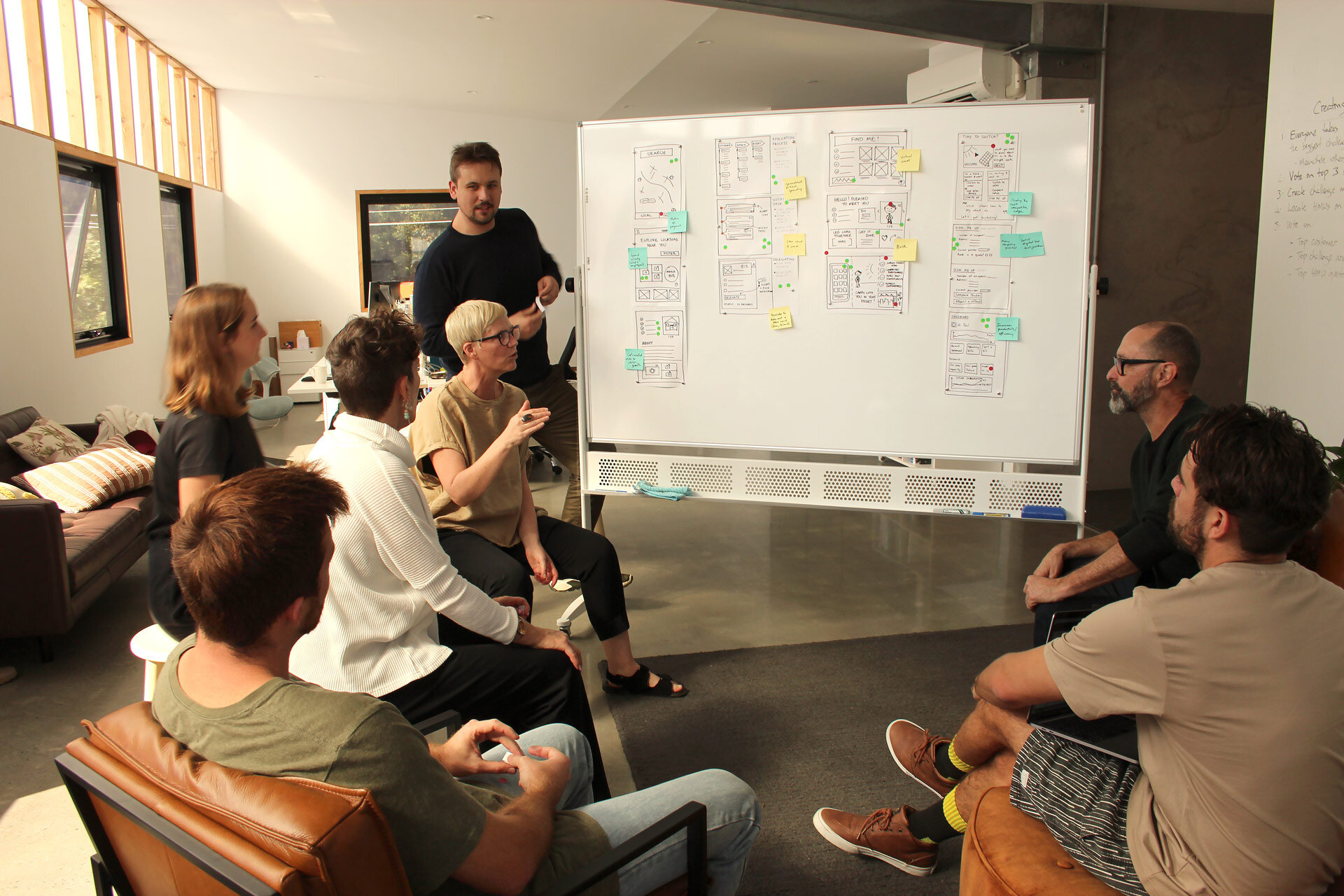
how we do it
New ways of working, new paths to growth
We define problems
We start projects by carefully defining your problem. This helps us to strategize the path to success and design a process that works for you and your team.
It ensures that everyone is on the same page about what the project aims to achieve, minimizing the risk of unnecessary complications and rework down the line.
“A problem well-defined is a problem half-solved.”
— Charles Kettering
We disrupt silos
We use cross-functional workshops to engage a broad and diverse range of stakeholders in projects, ensuring a rich mix of insights and ideas.
We create experiential sessions that raise the bar for collaboration in your company, drawing lessons from design thinking and behavioural psychology, and practical tips from some of the world's best facilitators.
“A diverse mix of voices leads to better discussions, decisions, and outcomes for everyone.”
— Sundar Pichai
We hack solutions
Hacking, in the world of digital innovation, means out-of-the-box solutions and shortcuts that scale.
We bring a hacker mindset to every project. We're always looking for a faster, cheaper, more effective way of creating value for you by mixing and matching elements of our core offerings – strategy, research, and workshops – in new ways.
“The essence of growth hacking is the hacker spirit that emerged out of software engineering – searching for novel ways to solve problems.”
— Sean Ellis
We build human capabilities
Our goal is to help you catalyze your organizational capabilities and thrive. We dream of a future defined by dynamic, human-centered organizations, and we want to help you create it.
Whether we are running workshops, conducting research, or helping you hack solutions, we work with you to develop and embed new capabilities for lasting value.
“Treat people as if they were what they ought to be and you help them to become what they are capable of being.”




